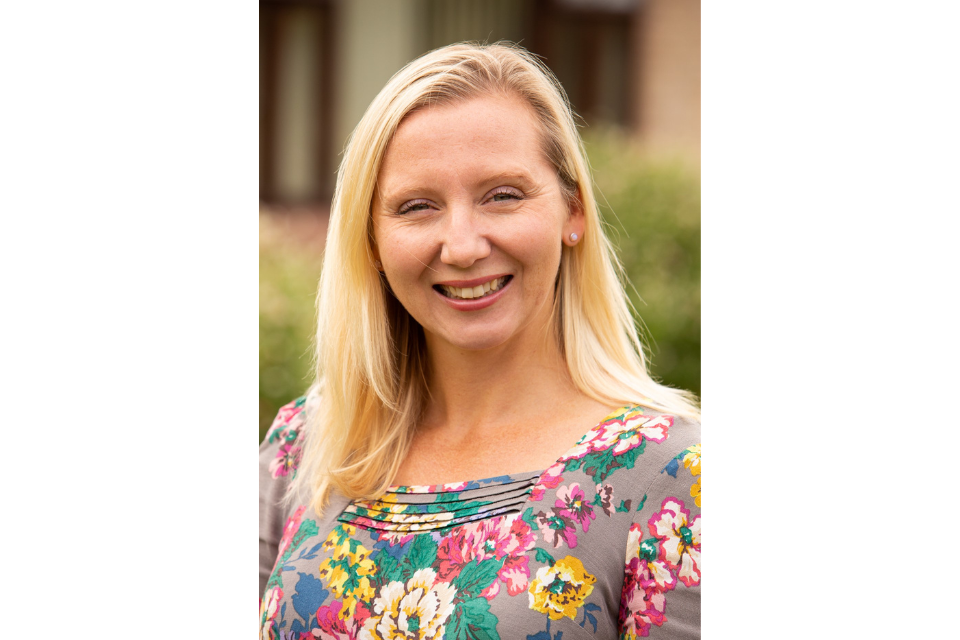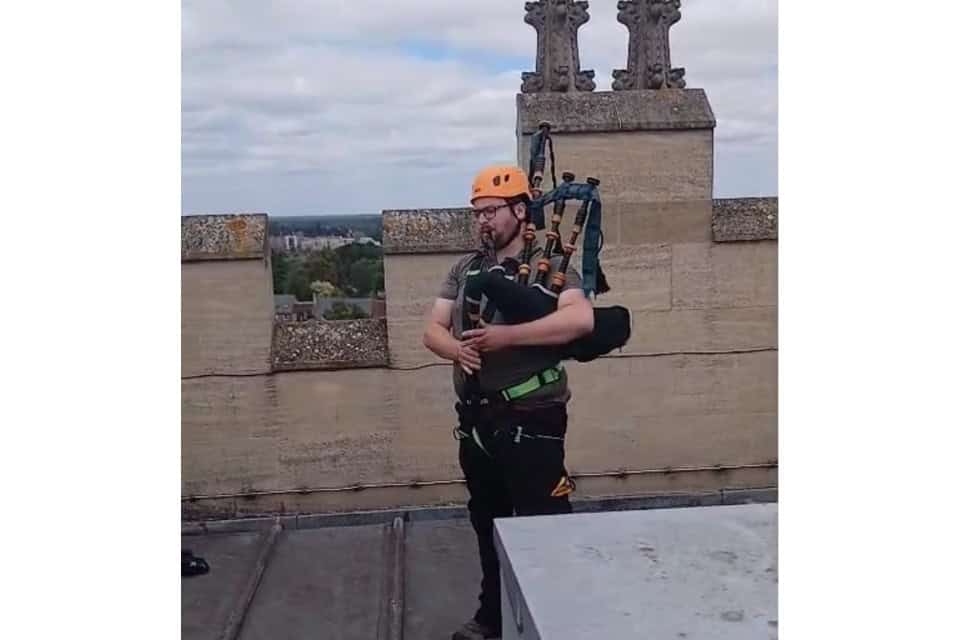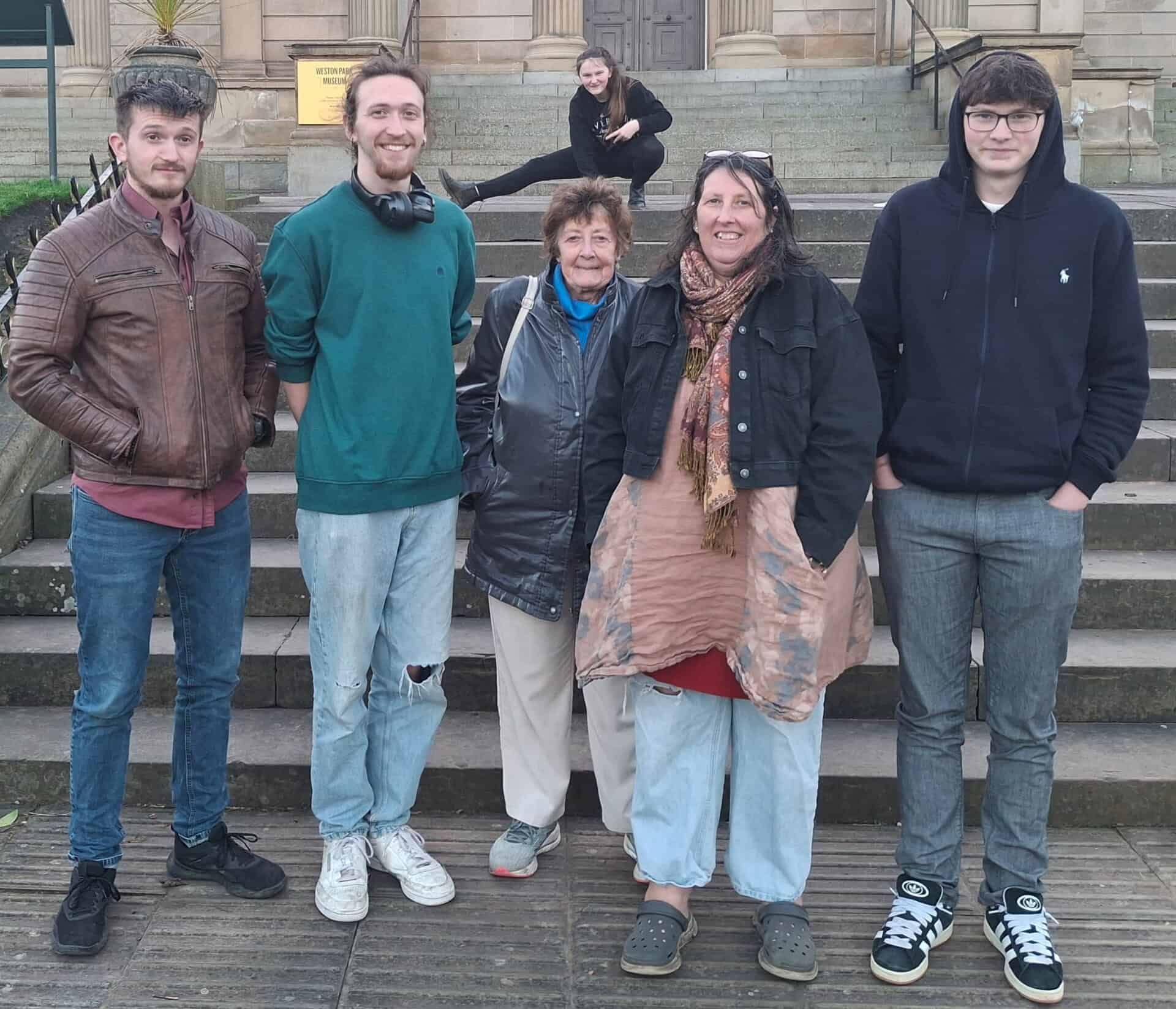In many ways, Helen Finlinson’s life and career have gone full circle.
East Anglia’s Children’s Hospices’ (EACH) new Director of Care is settling into her role after nearly 20 years working for St Elizabeth Hospice, in Ipswich.
Geographically, she is back in Suffolk after a long career that once saw her based in London, as well as enjoying adventures in far-flung locations like Bermuda, Russia, Zimbabwe, South Africa and Peru.
And in terms of people that have influenced her along the way, she has already discovered an extraordinary connection between her new role and formative years, when she first started out in the care sector.
“I always knew I wanted to work in care and did some work experience at the Thomas Wolsey School, in Ipswich,” said Helen, 46.
“I absolutely loved it and knew from then on I wanted to work with children with disabilities and complex needs.
“My neighbour at the time told me I’d make a good occupational therapist and said she’d ask a colleague from work to pop round for a chat.
“That’s what happened and as soon as she started describing it, I thought ‘that’s exactly what I want to do’. I knew I wanted to help people live their best life, meeting individual goals and being as independent as possible.
“Occupational therapy was definitely for me, so I applied for a course at the University of East Anglia.
“That’s where I started, and then I had the most incredible full-circle moment during my first week with EACH, during an induction day at The Nook.
“Everyone went round the room introducing themselves, and I recognised Clare Lindsay, the occupational therapist there. It turns out she was my neighbour’s friend who came round and sat in my mum and dad’s living room, back when I was 16.
“She was the one who set me on this career path in the first place, which was an amazing coincidence and very affirming.”
Before going to university, Helen explored her interest in children’s palliative care and visited Little Havens Hospice, in Essex. It was an experience that stayed with her forever.
During her studies at the UEA, she then had the opportunity of an elective, clinical placement and ended up spending four months in Bermuda, working with children and families.
After graduating, Helen moved to London and worked at the Royal Free Hospital, in London.
During her time there, she had the opportunity to explore various areas, including psychiatry and neuroscience.
She also had the opportunity to spend half her week at the Marie Curie Hospice, in Hampstead.
A key moment came when she met a patient who was HIV positive.
“It struck me as an area where people experience huge amounts of inequality, prejudice and injustice, and I felt inspired to be more involved in the palliative care of people with HIV and AIDS,” said Helen.
“Then I discovered there was an HIV/AIDS hospice called Mildmay, in Hackney.
“I applied for a job and ended up working there for several years, managing the day service.
“It was a real community and everyone who used the service, as well as staff and volunteers, were united by their sense of compassion.
“It was a hugely ethnically diverse population, including migrants and asylum seekers, and they felt extremely isolated.
“I found myself in a minority, being a white, cisgender, straight female, and that made it a particularly rich and brilliant experience that gave me a passion for inclusion.”
It was Helen’s first palliative care leadership role, and, among the early highlights, she travelled with her Chief Executive to Russia, to do some teaching in Moscow.
“A lot of the population affected by substance misuse were HIV positive but didn’t access treatment,” she said.
“We visited drug rehab centres housed in shacks, where people had little money, to provide shelter and support for those struggling with addiction and being HIV positive.
“I was also fortunate to go to Zimbabwe, having an opportunity to support youngsters in the children’s hospital, many of whom needed palliative care. Children and families travelled for miles to receive our help and support, often on foot.
“Again, it reminded me what I was passionate about – supporting children and particularly those needing palliative care.
“I also got involved with projects in South Africa, including spending time with a Christian charity called The Beautiful Gate.
“They support children who have been orphaned through HIV or born HIV positive.
“Amazingly, through love and care and thanks to something of a medical miracle, it was possible to convert them to being negative, if their immune system was given a chance. That meant they had a better chance of adoption.”
After getting married and falling pregnant, Helen and her husband left London and moved back to Suffolk. It led to her getting a job at St Elizabeth Hospice, in Ipswich.
Her first role was as Day Services Manager, before becoming Service Development Manager.
She then became Young Adult Care and Transition Lead and was given the task of looking at inequality – a passion from her time in London.
“Suffolk isn’t the most diverse place, but it’s more diverse than we were seeing in the hospice,” said Helen, who lives in Rendlesham.
“Part of my work involved looking at the communities that were under-represented, and that included teenagers and young adults leaving children’s hospices. They didn’t have a service to go to when they turned 18.
“My CEO told me about an all-party parliamentary meeting coming up at the Houses of Parliament.
“It was to launch a research paper about the plight of young adults leaving children’s hospices. I was asked if I wanted to go.
“At the time, I was knee-deep in nappies after the birth of my third son and a day out sounded right up my street!
“It turned out to be a life-changing moment because I’d never really thought about what it was like for teenagers to be in a children’s hospice with loads of amazing support and then turn 18 and feel like they’d fallen off the face of the Earth.
“I met a hugely inspirational young lady called Amy-Claire Davies, from Wales.
“She was one of the main case studies in the research and had bravely shared her story. Her health was deteriorating, and she was very poorly, but now without the palliative care and support she needed.
“Essentially, when she needed help the most, there was very little there for her.”
Helen also met disability and palliative care campaigner and activist Lucy Watts, from Essex.
“It was another conversation I felt massively impacted by,” she said.
“I knew there must be local families in a similar situation and thought ‘where are they? We’ve got to find them and do something about this’.
“That was what kick-started my quest to co-produce Zest Young Adult Care – a service to ensure young adults have a smooth transition into adult care.
“We worked closely with families, asking them to guide us around what was most important to them.
“We also had young adult champions, who taught me everything I needed to know about crafting a short-break experience that would work for them. They were involved in all the details all the way through.”
In terms of short breaks, the feedback from families was that they were an absolute lifeline.
Their children, or teenagers, were getting bigger. Their care was more technical, and they were getting less help from ageing grandparents.
“There was very little evidence around the country about what could be done to help, what sort of service it should look like and how it could be commissioned, because the services just didn’t exist,” said Helen.
“The funding wasn’t in place and that disparity was having a real impact on families.
“Essentially, with that in mind, we co-designed a sort of pop-up short-break unit and young people would come and stay from a Friday to Sunday.
“They were our pioneers, and we had an overwhelming response from families.
“A year on, we were able to get our service properly funded and commissioned and so it continues to this day. That was essentially the start of Zest’s journey.”
Helen then worked at St Elizabeth as Head of Inclusion, focusing on communities that are under-represented when it comes to hospice referrals.
She worked with people with learning disabilities, people hard of hearing or deaf and those from ethnically diverse communities, gaining insight into the cultural barriers that might prevent them accessing care.
Part of her role involved “unpicking barriers” – solving problems that she was not previously aware of.
“For instance, we had some feedback about some of the professional photos we shared of our hospice,” she said.
“We wanted to show everyone what a beautiful environment it is, but people told us their first thought was that they wouldn’t be able to afford our services.
“In their own countries, they would have had to pay, whereas what we provide is free and we have to be quite explicit and say as much.
“People from white-British communities don’t necessarily need that spelled out, because they’ve grown up with the NHS. We’re used to getting things for free when it comes to health.
“However, people from different communities and cultures may see things differently and that was a real lightbulb moment for me. It was about unlocking access to our services.”
Helen’s last role, in her final six months, was Associate Director for Integrated Community Care.
In that time there was unprecedented demand for adult hospices, with huge numbers of people needing palliative and end-of-life support.
“Essentially, our service was overwhelmed, and we were stuck in a firefighting position,” said Helen.
“Having such a reactive service wasn’t good for anybody, so my task was to oversee a transformation project – to look at how we could better meet the needs of people wanting to be cared for in their own homes.
“I saw myself as a facilitator, trying to pull other people’s ideas together and taking on the project management side of things.”
Now Helen is looking forward to the next chapter of her career at EACH.
She joined in April and is excited to help develop the organisation’s care strategy, offering even more care and support to children and families across East Anglia.
Away from work, Helen is a busy mum with three teenage boys – Jack, 18, Leo, 16, and Noah, 13.
She spends much of her spare time following their various sporting pursuits, on the sidelines at football and rugby matches.
She also loves walking her two labradors, keeping fit and being an active member of her church.



